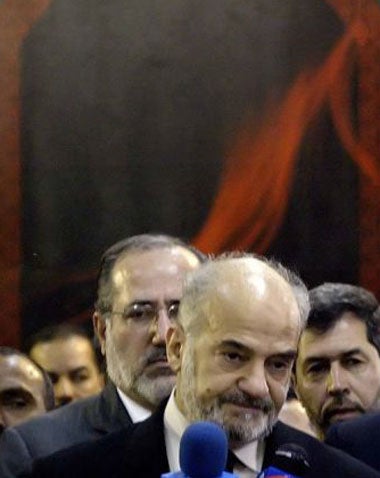'Weak' PM picked to lead new Iraq government

Shia lawmakers decided by a one-vote margin yesterday that Ibrahim al-Jaafari would remain the Prime Minister of Iraq though prolonged wrangling over the shape of the government is likely to continue for weeks.
Mr Jaafari's win over Adel Abdul Mahdi, an economist and the Vice-President, marks a sharp turn in his fortunes from a few months ago when he was being written off as a weak leader and given little chance of being reselected.
In the past one of the mild-mannered Mr Jaafari's political strengths has been that he has fewer enemies than other Iraqi leaders.
At the same time, the political and military gridlock in Iraq is likely to continue because of hostility between the Shia, Sunni and Kurdish communities as well as their differing attitudes to the US military occupation.
The post of prime minister was inevitably going to go to a Shia politician because the United Iraqi Alliance (UIA), the coalition of Shia Islamic parties, won 128 out of 275 seats in the parliamentary election in December. Some 15 to 16 million Iraqis are Shia, out of a population of 26 million - the Sunni and Kurds number about five million each.
Mr Jaafari's success will not be wholly welcome to the US because he is closer to the Shia religious leaders than Mr Mahdi, a member of the Supreme Council for Islamic Revolution in Iraq. Kurdish leaders have criticised him for being evasive about agreements over the sharing of power. Nevertheless a coalition between the UIA and the Kurdish coalition with 55 seats in parliament is likely to be the basis of the government.
Central to Mr Jaafari retaining his job is his alliance with Muqtada al-Sadr, the populist and nationalist Shia cleric, whose supporters did particularly well in the election. Mr Jaafari is the leader of a wing of the Dawa party, an underground Islamic party which was persecuted by Saddam Hussein. Mr Mahdi, once a Maoist and now a believer in free market economics, may have been considered too much of a maverick by some Islamic politicians.
The time it has taken for the UIA to appoint Mr Jaafari as their candidate for prime minister underlines the gridlock in Iraqi politics. The Kurds have little choice but to continue with their alliance with the Shia religious parties. The secular parties did badly in the December election though the Kurds, backed by the US, would like to bring Iyad Allawi, the former prime minister, into the government. The Sunni have also been promised a share in power after taking part in the parliamentary election.
At a press conference yesterday Mr Jaafari said: "The priorities of the new government will be the same as the last one's - security, the economy and the rebuilding." His words are not entirely comforting. Over the last year security has failed to improve, the economy is a wreck and there is little reconstruction.
Any Iraqi prime minister would have difficulty running an administration because each ministry is allocated to an ethnic or religious group or a party. It is impossible for the Prime Minister to fire ministers or exercise control over their actions. Each ministry becomes the bastion of whichever group controls it. Corruption is pervasive.
Mr Jaafari was born in Karbala in 1947 and he earned his medical degree at Mosul university. He joined the Dawa party in 1968 and fled to Iran in the 1980s when Saddam launched a purge of members of the Islamic parties. He fled to London where his family - he has five children - still live. He served on the Iraqi Governing Council and became prime minister after the first of two parliamentary elections last year.
Mr Jaafari's success is particularly important because the new parliament will not face re-election for four years. He faces serious political battles. There is no sign of the Sunni insurgency ebbing. The Kurds are determined to retain quasi-independence including control of the oil city of Kirkuk. The UIA is still struggling to keep its authority over the Ministry of the Interior and is suspicious of American efforts to keep much real power in US hands.
Subscribe to Independent Premium to bookmark this article
Want to bookmark your favourite articles and stories to read or reference later? Start your Independent Premium subscription today.

Join our commenting forum
Join thought-provoking conversations, follow other Independent readers and see their replies